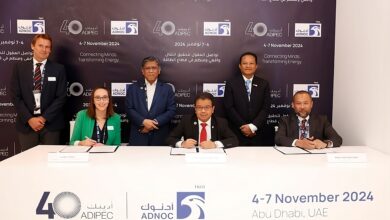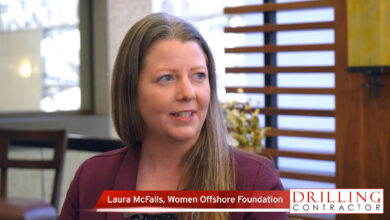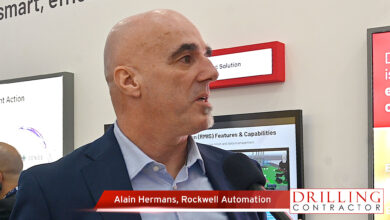Skilled workforce, innovations in drilling engineering among Aramco’s key tenets for success
On drilling rigs, the NOC would like to see more use of advanced robotics and integration of automation solutions into control systems
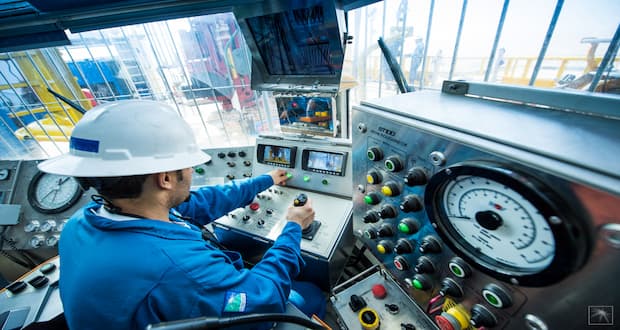
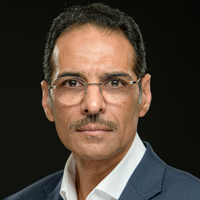 By Linda Hsieh, Editor & Publisher
By Linda Hsieh, Editor & Publisher
Najeeb Al-Abdulrahman is VP and Chief Drilling Engineer of Saudi Aramco.
From your perspective as Vice President and Chief Drilling Engineer for Saudi Aramco, what do you see as the biggest near-term challenges for the drilling industry?
As we try to meet global energy demand, there is a great and immediate need for new talent as the market conditions have improved and operations are scaling up. As we deploy new cutting-edge technologies, it is imperative that we have a skilled workforce that can utilize such technologies and assist Aramco in sustaining its position as a global energy leader.
How can innovations in drilling engineering help the industry to achieve better drilling performance and better wells? Can you talk about what Saudi Aramco is doing to improve its drilling engineering?
Innovation in drilling engineering is a key factor toward enhancing performance and delivering quality wells. As new technologies are introduced and deployed, they can minimize human error, reduce cost, automate repetitive tasks, enhance safety, optimize reservoir performance, and realize countless other tangible benefits that holistically contribute toward achieving better performance.
As for what we are doing to improve, Saudi Aramco Drilling Engineering has a team of highly skilled, well-motivated talents, both local and expats, that drive a culture of excellence. Development of our people is one of our key success factors. We consider ourselves industry leaders so we go the extra mile. You see in-house developed Aramco SMEs on the board of industry bodies such as the American Petroleum Institute involved in major decision making that steer the industry. We pay attention to quality in our well design and construction so that our wells can last long, which ties into our drive for sustainability. We also pay careful attention to the environment with a drive toward zero impact, which also ties to the company’s and Kingdom’s Net-Zero vision.
Additionally, we leverage quality process such as Operational Excellence and are in the forefront of innovation and technology deployment. This is reflected in the amount of intellectual property and granted patents we have achieved over the years, many of which are in the process of being commercialized.
An example is the retrievable ESP system, JumpStart, that we developed from concept to reality. We have several customized solutions developed in-house, in addition to extensive collaboration with industry technology giants. Our optimization process includes drilling real-time monitoring, prediction and mitigation tools that are built on AI, robotics and Big Data platforms – all of which help to enhance the safety and efficiency of our operations.
Where will Saudi Aramco be looking in the next one to two years for cost reductions in its drilling programs, now that rising rig demand is pushing up dayrates and there is inflation throughout the supply chain?
I would like to emphasize that we have always strived to optimize our well planning processes and drilling programs. In the next one to two years, we intend to continue with enhancing our drilling programs through implementation of new technologies and AI solutions aimed at helping us improve our well quality and to optimize resources.
When you spoke at the IADC Advanced Rig Technology Conference in September 2023, you mentioned that you place great focus on collaborative team building. Can you talk about that approach?
In our industry, collaboration is the cornerstone of progress. Our approach is to break the silos by having partnerships with service providers, rig contractors and rig manufacturers to share knowledge and expertise, and work together to create new opportunities for them in order to reach win-win situations. One example is the JumpStart project mentioned earlier and the patents commercialization efforts we are pursuing.
The Saudi Arabian market is among few places in the world where we are seeing a significant rig newbuild program. What innovations would you like to see on these newbuilds to make them “rigs of the future”?
Building “rigs of the future” is something that all of us aspire to in Saudi Aramco, and we are working with our partners to achieve that. For the newbuilds, I would like to see automation systems and rig robotics, and smart power management systems to help reduce carbon emissions.
Are there any upgrades that you would like to see drilling contractors make on existing rigs?
Start with low-hanging fruit such as process automation. As mentioned earlier, I would like to see the existing global rig fleet being retrofitted with automation systems that are integrated with the rig control system to automate drilling and connection activities, along with rig robotics, to ultimately improve performance, enhance safety and ensure consistency.
A lot of new AI and machine learning-based systems have been developed to help improve the efficiency of well planning and drilling operations. What do you see as the biggest roadblocks to the widescale implementation of these technologies?
I believe that rig compatibility with new AI and machine learning-based systems is one of the main roadblocks to implement and scale up these technologies. This also applies to vendor-to-vendor system integration challenges. The industry needs to adopt new standards for integrating digital systems to speed up the adoption of these novel AI and machine learning-based systems. AI and rigs automation will complement each other to achieve the best of all.
Can you talk about any projects in which automation and digital technologies have demonstrated value in your work at Saudi Aramco?
I can highlight two projects that have had an impact and demonstrated value in our operations in Saudi Aramco. The first one is drilling automation systems; these systems have been deployed on some of our rigs and enabled us to drill better, safer and more consistent wells.
In addition, we have a digital stuck pipe prevention solution, which was developed in-house to have real-time monitoring and insights of downhole conditions, which will improve the decision-making process to avert possible stuck-pipe incidents.
If we look at well completions specifically, what do you see as the biggest challenges and technology gaps?
The biggest challenge is the time it takes to deploy completion systems with smart technologies in deeper extended-reach wells and the challenge to de-complete them in case of failures. A good example of this is the recent installation of modified level 5 completion in some of our fields with dual PDHMS (permanent downhole monitoring systems) and ESPs.
How can drilling contractors assist with your carbon reduction efforts?
We would like drilling contractors to adopt the latest technologies for measuring and controlling carbon emissions. This can be done through deploying smart power management systems, proven fuel catalysts and energy storage systems.
What is your vision for the future of drilling, say, 20 years from now? How would you like to see drilling engineering change during that time?
In the coming two decades, the drilling industry will undergo a revolutionary transformation, where foundational principles will merge seamlessly with pioneering technologies. The core values of safety, environmental stewardship and operational efficiency will remain paramount, while cutting-edge innovations such as automation, robotics, AI and energy integration will revolutionize the drilling industry.
As for drilling engineering, I see this domain evolving significantly, where engineers will embrace new well completion methods utilizing non-metallic materials, harnessing advanced real-time simulation tools and embracing autonomous drilling practices. Further, as the industry transitions into the digital era, our industry must cultivate an environment conducive to attracting and retaining diverse talent, focusing on long-term career growth for professionals with strong STEM skill sets.
The blend of enabled workforce, visionary leadership and global responsibility will define the future of drilling. DC
JumpStart is a trademark of Saudi Aramco.

